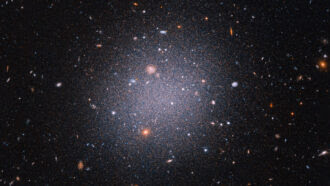3.084 - AMICOR (25) Vinte e Cinco Anos de AMICOR, comemoramos dia 17/05/2022
#Dra. Valderês A. Robinson Achutti (*13/06/1931+15/06/2021)
(clicar em Apresentação de Slides)
#Change
|  | |  | PROJETO DE LEI FEDERAL Dispõe sobre ações e procedimentos nas relações entre apicultores/meliponicultores e agricultores para a proteção das abelhas durante o uso de defensivos agrícolas. |
|
#Popular Mechanics
This is how a black hole can exist in both two dimensions and three dimensions at the same time. #IEP Aristotle 
Aristotle is a towering figure in ancient Greek philosophy, who made important contributions to logic, criticism, rhetoric, physics, biology, psychology, mathematics, metaphysics, ethics, and politics. He was a student of Plato for twenty years but is famous for rejecting Plato’s theory of forms. He was more empirically minded than both Plato and Plato’s teacher, Socrates.
A prolific writer, lecturer, and polymath, Aristotle radically transformed most of the topics he investigated. In his lifetime, he wrote dialogues and as many as 200 treatises, of which only 31 survive. These works are in the form of lecture notes and draft manuscripts never intended for general readership. Nevertheless, they are the earliest complete philosophical treatises we still possess./.../ #SIMERS
Estamos hoje comemorando os 91 anos do Sindicato Médico do Rio Grande do Sul - SIMERS. No 20 de maio de 1931, um grupo de médicos visionários, sonhadores e empreendedores reuniu-se no salão nobre da faculdade de medicina para criar este que é, hoje, o maior sindicato médico da América Latina. Muito tempo passou desde aquela data: exatamente 91 anos, durante os quais vimos mudanças radicais no mundo e na medicina. O Simers, fiel ao seu propósito em defender os médicos, a medicina e a saúde, se adapta aos tempos, amplia sua estrutura para oferecer soluções e serviços aos associados, além da representação nas questões políticas e do trabalho dos médicos. Neste dia especial parabenizamos e agradecemos aos MÉDICOS, que dão vida ao Simers. |
Marcos Rovinski, Presidente do Simers |
|
|
| |
|
|
#Science News | |  | A galactic smashup might explain galaxies without dark matterMay 18 2022 11:00 AM Scientists are debating whether a trail of galaxies reveals the origins of two weird dark matter–free galaxies. |
|
Simple Gene Circuits Hint at How Stem Cells Find New IdentitiesBy VERONIQUE GREENWOOD Synthetic biology experiments suggest a “MultiFate” model for how genetically identical cells become the many different types found in complex organisms like us.
Read the article |
|
| |  | How to Write Software With Mathematical PerfectionBy SHEON HAN; Video by EMILY BUDER Leslie Lamport revolutionized how computers talk to each other. Now he’s working on how engineers talk to their machines.
Read the interview
Watch the video |
 | Will the James Webb Space Telescope Reveal Another Earth?Podcast hosted by STEVEN STROGATZ Marcia Rieke and Nikole Lewis, two of the scientists leading JWST investigations, talk to Steven Strogatz about how it may transform our understanding of the universe.
Listen to the podcast
Read the transcript |
|
Celebrating an Overlooked Physicist
Chien-Shiung Wu was a brilliant nuclear physicist whose discovery of parity violation by the weak force was unjustly overlooked for a Nobel Prize. Yasmin Tayag profiles her for Popular Science. Madame Wu’s experiment showed that all neutrinos are left-handed. This and other quirks of particle physics can be seen in Quanta’s map of the Standard Model, created by Natalie Wolchover, Samuel Velasco and Lucy Reading-Ikkanda.
Dark History
An ancient collision might be responsible for the missing dark matter in two galaxies, reports Emily Conover for Science News. When the galaxies collided, the dark matter would have passed through unperturbed, while the regular particles slammed against one another. While the existence of galaxies without dark matter has been a mystery, they have helped physicists rule out certain alternatives to dark matter such as modified Newtonian dynamics. Joshua Sokol explained it for Quanta in 2018. |
|
|
|
|
| |
(video) #Maria Popova The fifth annual Universe in Verse — a charitable celebration of the wonder of reality through stories of science winged with poetry, which I began in 2017 as part celebration of life and part protest against the assault on science, nature, and reality in the era of “alternative facts” and vanishing environmental protections — took place at UC Santa Cruz on April 16, exploring the largest question we live with: What is life? (The original show announcement and description are below.) Quite apart from the technical and financial challenge of broadcasting live from the redwoods, a typical livestream of a California evening event would have excluded most of the waking world. Instead, here is a global “retrostream” — a time-shifted weekend-wide broadcast to welcome all the world’s time-zones, freely available from 12PM EST on Saturday, May 21 until 4PM EST on Sunday, May 22, to be enjoyed in viewing parties or parallel solitudes, in fragments or in a single-sitting feast. |
|
RRe
















No comments:
Post a Comment